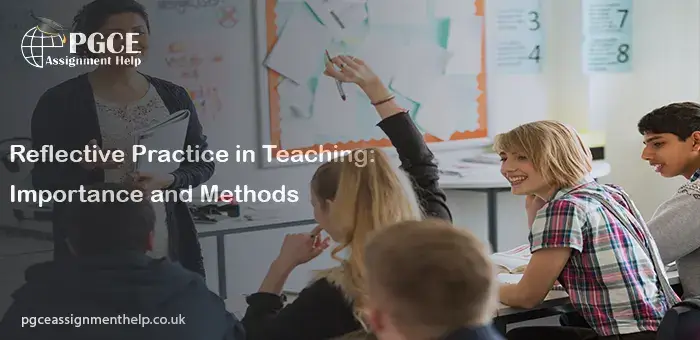It is one of the essential means of studying and analyzing, thus mastering the process of becoming a teacher and the experiences gained in the classroom. The process of reflective practice allows the teacher to focus on the context and needs that are present in the framework of education, constantly updating their activity and professional growth, and improving their suitability for solving contemporary tasks.
Reflection as an Element of One’s Practice
Enhances Professional Growth:
Respectively, by self-reflecting about the teaching experiences, one can discover the aspects that need improvement as well as those he or she is good at. Through this continuous self-appraisal, the teachers can learn new approaches to teaching, and embrace new techniques. And use the available research information and innovations in education.
Improves Student Outcomes:
Generally, when teachers deliberate on their affairs, then they acquire knowledge of what should be done and what should not be done in the lesson. It helps them to make the necessary changes that can help in enhancing students’ interest and skills in learning whereby, as a result, the achievement of intended instructional goals is enhanced. Reflective practice enhances the habits of the student learning approach to make sure that many different learning styles are acquired.
Fosters a Growth Mindset:
It is stated that reflective practice contributes to the development of a growth mindset among teachers. It also improves students’ endurance and ability to evolve while at the same time illustrating an inspiring example for scholars to follow.
Builds Self-Awareness:
Teaching reflections could enable an educator to be more knowledgeable of himself. Teachers need to know their assumptions and feelings to help make fair environments for each learner. Unfortunately, not many teachers are self-aware hence leading to poor students’ relationship and poor methods of handling barriers to learning.
Encourages Collaboration:
One day on the job implies that reflecting can be done in groups involving other professionals. On the one hand, sharing of reflections, discussions as well as sharing of challenges and feedback encourages the formation of a professional learning community.
Approaches to Reflective Practice in Facilitating
Journaling:
This enables teachers to write about the events in their daily practice and interaction with learners, achievements, and difficulties they face in classroom practice. Using reflective journals, one can define progressive changes. And make patterns when it comes to the methods of teaching.
Peer Observation:
Peer observation implies sharing teaching practices, observing the teaching activities of one other, and offering feedback. This process fosters the ability of practitioners to talk and work together with one another and learn from one another.
Video Recording:
Video recording of classroom sessions also enables teachers to be able to watch and rethink the teaching strategies. In-detail conclusion: Watching one’s lessons in action enables teachers to distance themselves and critically evaluate instructions, conduct, and pupil relations.
Student Feedback:
Also, asking for feedback from the students is important because this gives you an insight into what they are learning. Considering students’ feedback assists educators in making the right decisions concerning the changes in practice.
Reflective Teaching Portfolios:
A reflective teaching portfolio is a profile of a teacher’s professional experience that contains tangible items. Those materials may be lesson plans, students’ projects, comments, and both the teacher’s and student’s reflective writing. Thus, creating and developing the portfolio enables the teacher to assess his or her progress, determine goals, and demonstrate the progress.
Professional Development Workshops:
Adequate structures for classroom reflections can be acquired in the form of workshops and training sessions of reflective practice from which teachers can gain.
Mentoring and Coaching:
Participation in the roles of a mentor or a coach ensures that the teachers are supervised by their peers in similar positions. Teachers and staff developers may provide valuable feedback and other teachers and coaches can even share good practices and help the teachers think about practice. Thus, it encourages the notion of professionalism undertakes constant process and development. Also, PGCE Assignment Help provides every little help regarding academics.
Action Research:
Teachers learn a problem, apply it, gather data, and then evaluate whether the strategies used work. Analyzing the results is important for using research findings for decision-making processes and improving practices among educators.
Conclusion
Professional reflection is a critical element in the teaching-learning process as it assists the teacher in achieving a high level of proficiency and improving students’ achievement. Implementing the policy of reflective practice is in the interest of individual teachers as well as of the entire society, enriching the education system and the teaching and learning community in general.
